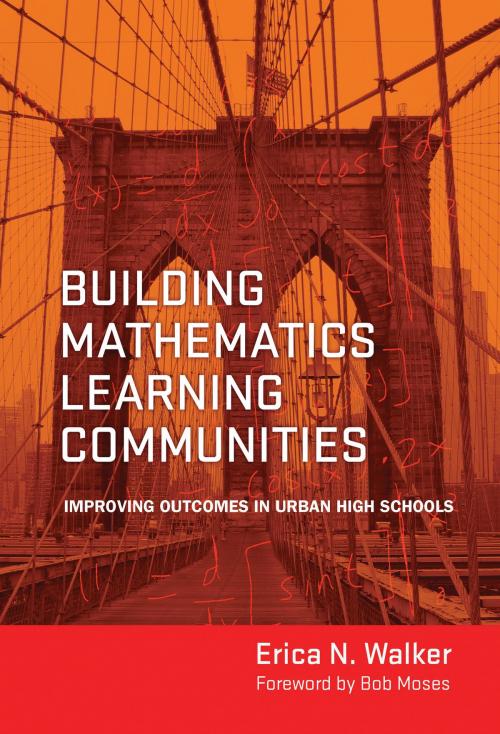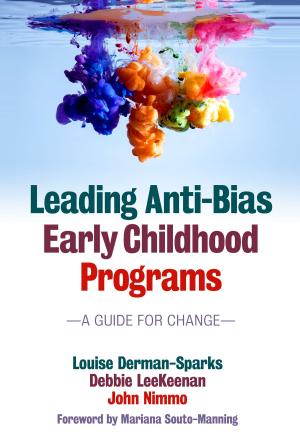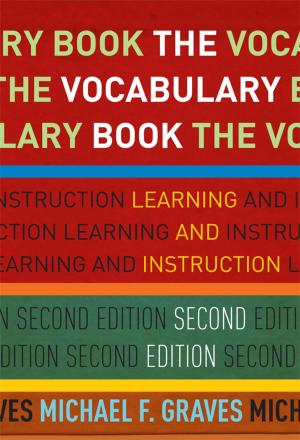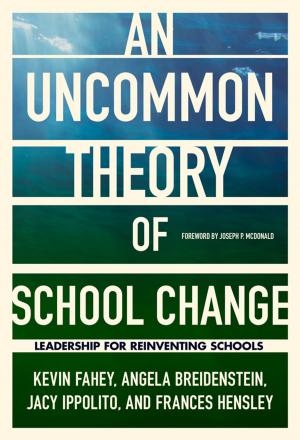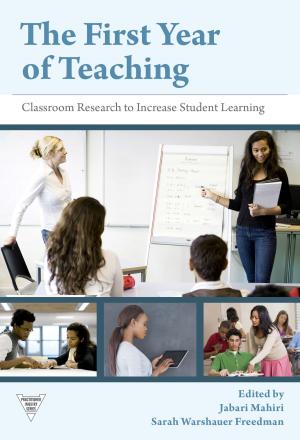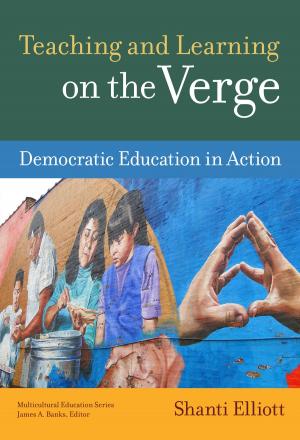Building Mathematics Learning Communities
Improving Outcomes in Urban High Schools
Nonfiction, Reference & Language, Education & Teaching| Author: | Erica N. Walker | ISBN: | 9780807771044 |
| Publisher: | Teachers College Press | Publication: | December 15, 2009 |
| Imprint: | Language: | English |
| Author: | Erica N. Walker |
| ISBN: | 9780807771044 |
| Publisher: | Teachers College Press |
| Publication: | December 15, 2009 |
| Imprint: | |
| Language: | English |
“Opportunity to learn (OTL) factors interact and ultimately influence mathematics achievement. Many important OTL interactions take place in school settings. This volume provides insights into the role of peer interactions in the mathematics learning process. The analysis describes with a sense of purpose a topic that is typically overlooked in discussions of mathematics reform. The case study is an important contribution to the urban mathematics education literature.”
—William F. Tate,
Edward Mallinckrodt Distinguished University Professor in Arts & Sciences, Washington University in St. Louis
Drawing on perceptions, behaviors, and experiences of students at an urban high school—both high and low achievers—this timely book demonstrates how urban youth can be meaningfully engaged in learning mathematics. The author presents a “potential” model rather than a “deficit” model, complete with teaching strategies and best practices for teaching mathematics in innovative and relevant ways. This resource offers practical insights for pre- and inservice teachers and administrators on facilitating positive interactions, engagement, and achievement in mathematics, particularly with Black and Latino/a students. It also examines societal perceptions of urban students and how these affect teaching and learning, policies, and mathematics outcomes.
Based on extensive research in urban high schools, the author identifies three key principles that must be understood for teachers and students to build strong mathematics communities. They are:
- Urban students want to be a part of academically challenging environments.
- Teachers and administrators can inadvertently create obstacles that thwart the mathematics potential of students.
- Educators can build on existing student networks to create collaborative and non-hierarchical communities that support mathematics achievement.
Erica N. Walker is Associate Professor of Mathematics Education at Teachers College, Columbia University.
“Opportunity to learn (OTL) factors interact and ultimately influence mathematics achievement. Many important OTL interactions take place in school settings. This volume provides insights into the role of peer interactions in the mathematics learning process. The analysis describes with a sense of purpose a topic that is typically overlooked in discussions of mathematics reform. The case study is an important contribution to the urban mathematics education literature.”
—William F. Tate,
Edward Mallinckrodt Distinguished University Professor in Arts & Sciences, Washington University in St. Louis
Drawing on perceptions, behaviors, and experiences of students at an urban high school—both high and low achievers—this timely book demonstrates how urban youth can be meaningfully engaged in learning mathematics. The author presents a “potential” model rather than a “deficit” model, complete with teaching strategies and best practices for teaching mathematics in innovative and relevant ways. This resource offers practical insights for pre- and inservice teachers and administrators on facilitating positive interactions, engagement, and achievement in mathematics, particularly with Black and Latino/a students. It also examines societal perceptions of urban students and how these affect teaching and learning, policies, and mathematics outcomes.
Based on extensive research in urban high schools, the author identifies three key principles that must be understood for teachers and students to build strong mathematics communities. They are:
- Urban students want to be a part of academically challenging environments.
- Teachers and administrators can inadvertently create obstacles that thwart the mathematics potential of students.
- Educators can build on existing student networks to create collaborative and non-hierarchical communities that support mathematics achievement.
Erica N. Walker is Associate Professor of Mathematics Education at Teachers College, Columbia University.
